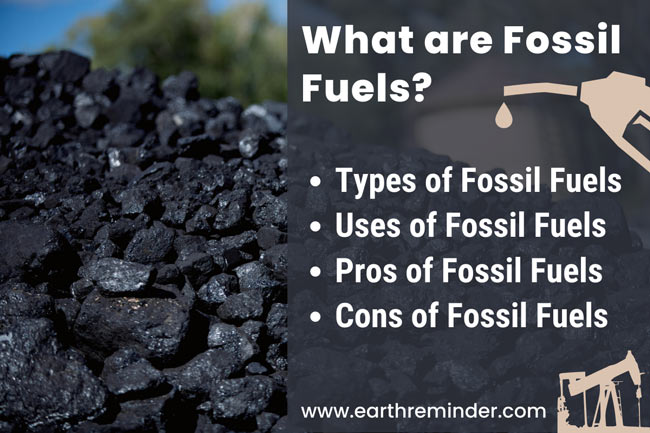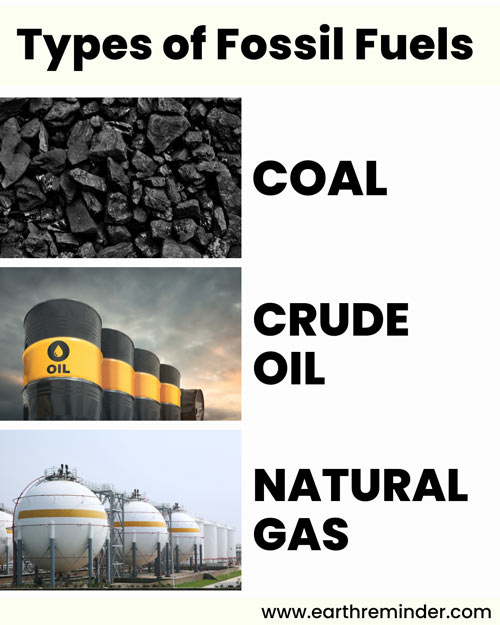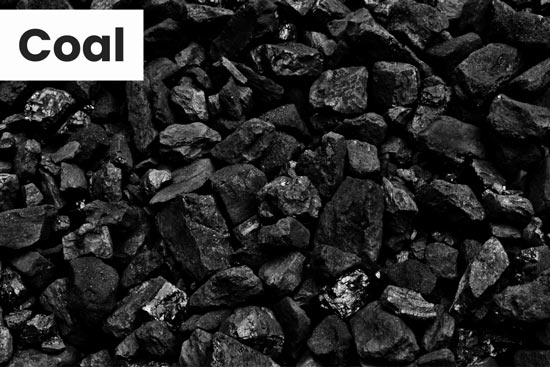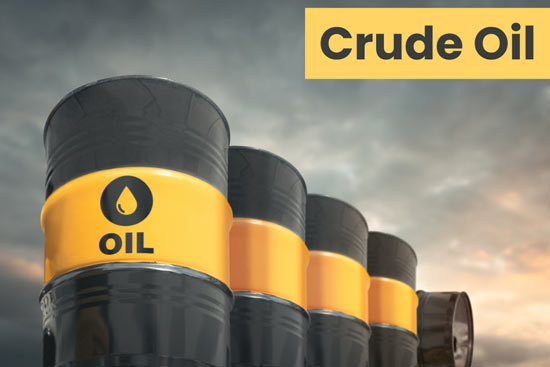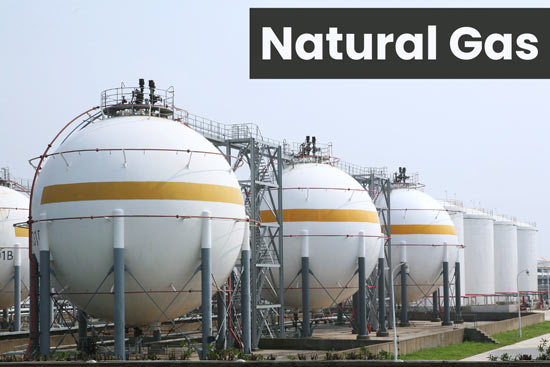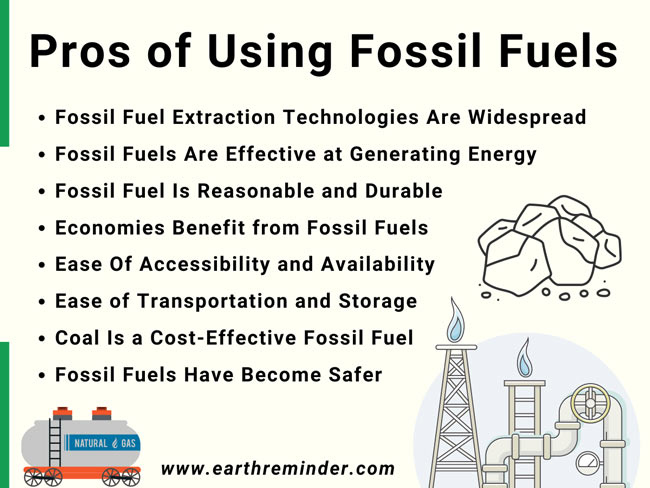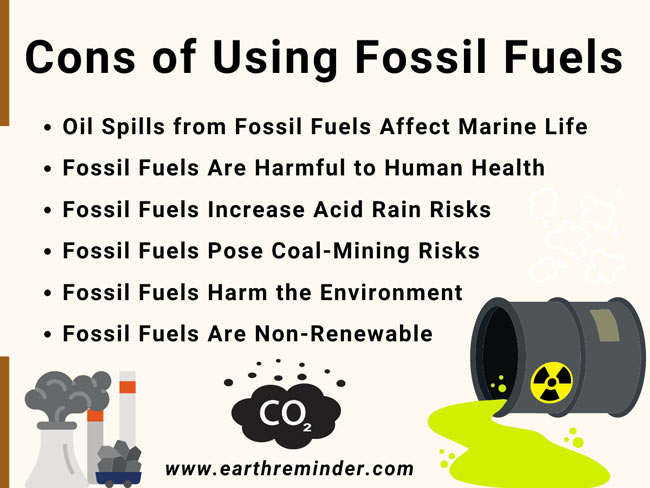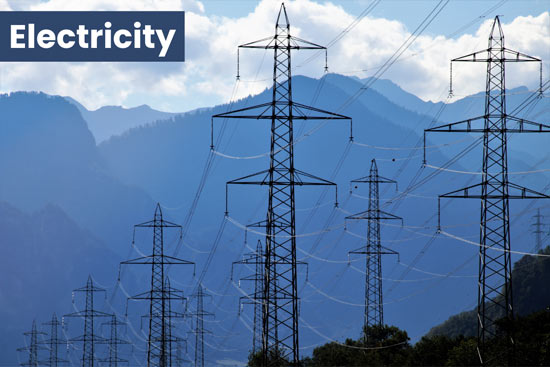Fossil Fuels: Types, Uses | Pros and Cons of Fossil Fuels
In the modern world, fossil fuels power everything from cars to light bulbs to industrial production. But what are these fossil fuels, and what are their pros and cons? Here, we will take an in-depth look at the types of fossil fuels, their uses, and how they impact our lives!
Fossil fuels are hydrocarbons, which are compounds of hydrogen and carbon. They are non-renewable sources of energy. They are created from the remains of plants and animals that once lived and died millions of years ago. A combination of heat and pressure from the Earth’s crust transforms fossils into fossil fuels, which are used as a source of energy. Their combustion allows us to generate electricity, heat our homes, and power our automobiles.
Table of Contents
- 1 How Long Does It Take for Fossil Fuels to Form?
- 2 What Are the Types of Fossil Fuels?
- 3 Pros of Fossil Fuels
- 3.1 Fossil Fuels Are Effective at Generating Energy
- 3.2 Coal Is a Cost-Effective Fossil Fuel
- 3.3 Fossil Fuel Extraction Technologies Are Widespread
- 3.4 Fossil Fuel Is Reasonable and Durable
- 3.5 Economies Benefit from Fossil Fuels
- 3.6 Ease Of Accessibility and Availability
- 3.7 Ease of Transportation and Storage
- 3.8 Fossil Fuels Have Become Safer
- 4 Cons of Fossil Fuels
- 5 Uses and Application of Fossil Fuels
- 6 Conclusion
How Long Does It Take for Fossil Fuels to Form?
Fossils are the remains or imprints of organisms that lived in the past. Most fossils are found in sedimentary rocks, formed when layers of sand and mud build up over time and preserve things buried in them.
According to the studies, fossil fuel formation is a slow and prolonged natural process that happens over an extremely long time. It usually takes millions or even hundreds of millions of years for fossil fuels to form. This process begins when the organism (plants and animals) dies and is buried in the Earth. Once there is a sufficient amount of organic matter, it is then subjected to high temperatures and pressures of the Earth.
This can happen due to being buried deep underground or through contact with hot rock formations. The combination of high heat and pressure causes organic matter to undergo chemical changes, forming fossil fuels like coal, oil, and natural gas.
Also Read: Rock: Cycle, Types and Examples.
What Are the Types of Fossil Fuels?
Fossil fuels are underground natural resources that people use primarily for producing electricity, powering vehicles, cooking, etc. During the past few decades, industrialization has increased the energy demand. Currently, fossil fuels meet our energy needs. The 4 types of fossil fuels are as follows:
Coal
It is the most abundant fossil fuel on Earth. Coal is found in large deposits worldwide and is a reliable and affordable energy source. Coal is an organic sedimentary rock that looks black or dark brown in color. Coal’s main component is carbon, which is found in layers. Coal comprises carbon, hydrogen, oxygen, nitrogen, and sulfur.
The top 5 countries with the most coal reserves are the United States of America, Russia, Australia, China, and India.
The EIA estimates that there are about 251 billion short tons of recoverable coal reserves in the United States, of which about 58% is underground mineable coal.
Coal is a vital fuel resource that helps in providing energy and electricity across the globe. Coal also plays an essential role in the steel industry, but the sad part is that it is one of the major reasons of greenhouse effects. That is why coal has moved into a decline mode in recent years.
Petroleum
Petroleum is also known as crude oil and is found in liquid form. It consists mainly of hydrocarbons and other liquid organic components. There are three different types of hydrocarbons in petroleum: Paraffinic, Naphthenic, and Aromatic.
Petroleum is formed from marine organisms such as plankton and algae buried under sediment at the ocean’s bottom. Heat and pressure transform organic matter into crude oil. Venezuela has the most oil reserves in the world, with over 300 billion barrels, followed by Saudi Arabia, with 297.5 billion barrels.
Our current method of extracting petroleum from underground reservoirs is drilling. However, fracking is another technique for extracting petroleum.
Extracting petroleum from underground reservoirs is similar to mining for precious metals and minerals; both require drilling machines to access what lies beneath the surface.
Engineers can refine petroleum into products such as gasoline (petrol), kerosene, and diesel. Refining oil requires separating the different hydrocarbon molecules from it, which requires considerable investment and expertise.
We can also call petroleum black gold because of its importance in daily life. Petroleum fossil fuels are primarily used to run automobiles, factories, and power plants. The demand for petroleum is increasing yearly, but excessive petroleum consumption pollutes the water and air.
Natural Gas
Natural gas is a colorless and flammable fossil fuel. It is made up of hydrocarbon gases, mainly methane gas, along with ethane, propane, and butane. In 2021, global natural gas production was approximately 4.04 trillion cubic meters.
Natural gas has advantages over other fossil fuels like coal and oil. It generally produces fewer emissions per unit than either coal or oil when burned. According to EIA, burning natural gas produces 117 pounds of CO2 per million British thermal units (MMBtu) compared to 200 pounds of CO2 per MMBtu of coal and 160 pounds per MMBtu of distillate fuel oil. Therefore, it can help reduce the carbon footprint considerably compared to traditional fuel sources.
Moreover, natural gas tends to be less expensive in the long run than oil and coal, making it economical and environmentally friendly. Natural gas is like a flame in a bottle; it provides an efficient, powerful source of heat and energy that can be used to power homes and businesses.
Orimulsion
Founded in the 1980s, Orimulsion is the latest fossil fuel to enter the energy sector. It is a fuel made from bitumen; a type of thick oil extracted from tar sands. It is then blended with water and emulsifiers (surfactants) to create a fuel that is similar to diesel (fuel oil) and is used in power plants and other industrial applications.
The first company to use Orimulsion was Intevep, the Research and Development Affiliate of Petroleos de Venezuela SA (PDVSA). It is a unique and powerful source of energy that is widely used in the industrial sector. However, there are some drawbacks to using Orimulsion. For example, it produces more emissions than other fuels, and it can be challenging to clean up if there is a spill.
Pros of Fossil Fuels
Fossil fuels are reasonable and durable, easy to access, readily available, economically advantageous, easy to transport and store, and cost-effective. The pros of using fossil fuels are as follows:
Fossil Fuels Are Effective at Generating Energy
Fossil fuel is a great energy source that we can use to generate massive amounts of power. The main advantage of fossil fuel is its capacity to produce electricity. This is because fossil fuels contain a lot of energy that can be released when burned; This makes them an excellent choice for power plants, which need to produce large amounts of electricity.
Coal Is a Cost-Effective Fossil Fuel
When we use coal in power plants, it can help us generate electricity very efficiently. In fact, coal is so capable of generating electricity that it’s used in a variety of power plants all around the world.
Coal is a cost-effective fossil fuel for two main reasons. The first benefit of coal is its ease of transport and storage. As a result, we can always keep an ample supply on hand. Second, coal is a very dense energy source. In other words, a small amount of it can generate a lot of electricity.
Fossil Fuel Extraction Technologies Are Widespread
Fossil fuels can be extracted using technologies that are accepted worldwide so that they can be used to their full potential. Different fuel types require different extraction techniques, but all share the common goal of getting as much fuel out of the ground as possible. This is done to meet the ever-increasing demand for energy.
Fossil Fuel Is Reasonable and Durable
Fossil fuel takes a very long time to form. Therefore, it is a very reliable source of energy. As this fuel can be used to create electricity, transportation fuels, and so on, it is reasonable and durable. Moreover, fossil fuels are relatively easy to extract and use, making them a popular choice for many people and businesses.
Economies Benefit from Fossil Fuels
The contribution of fossil fuels is commendable to the economy as a whole. Across the globe, the fossil fuel industry generates billions of dollars in revenue, creates jobs, and provides energy.
Fossil fuels – including coal, oil, and natural gas – have powered economies for over 150 years. As of today, they supply about 80 percent of the world’s energy.
Ease Of Accessibility and Availability
Fossil fuels can be found under the Earth’s crust, and with the right technology, they are relatively easy to extract. Also, they are found in geological formations, like sedimentary rocks, and can be extracted through drilling and mining. For example, oil can be obtained by drilling down into the ground, and coal can be obtained through surface mining.
Ease of Transportation and Storage
Transporting and storing fossil fuels is relatively easy and inexpensive, making them a viable energy source. Oil can be transported by pipeline, tanker, or barge after extraction.
For example, gasoline/petrol can be stored in tanks and transported to fuelling stations, where it can be used to power cars and other vehicles.
They can then be stored in above-ground tanks or underground reservoirs. Aside from this, fossil fuels can be stored for long periods, making them a reliable energy source.
Fossil Fuels Have Become Safer
Fossil fuels like coal and oil have been increasingly safe to use over time. The risks associated with their use have been greatly reduced with the development of cutting-edge technologies and extraction methods.
In particular, safety standards have improved, and sites are now better monitored, making accidents much less likely to occur. For instance, real-time monitoring systems are now commonplace on oil and gas sites, enabling early detection of any potential issues and allowing quick action to be taken to prevent any disasters from occurring.
Cons of Fossil Fuels
Burning of fossil fuels harms the environment, increases acid rain risks, poses health risks to humans, leads to coal mining safety risks, and affects marine life through oil spills. Below are the cons of using fossil fuels:
Fossil Fuels Harm the Environment
Fossil fuels are responsible for the large majority of the greenhouse gases contributing to climate change. The combustion of these polluting energy sources releases carbon dioxide (CO2), nitrogen oxides (NOx), sulfur dioxide (SO2), particulate matter (PM), and other harmful pollutants into the atmosphere. In turn, these emissions trap heat, resulting in higher global temperatures and more extreme weather. This phenomenon is known as the greenhouse effect, the leading cause of climate change and global warming.
For example, burning fossil fuels emits about 34 billion tonnes (Gt) of carbon dioxide (CO2) into the atmosphere each year. Our planet could suffer disastrous consequences if we continue to rely on fossil fuels.
Fossil Fuels Increase Acid Rain Risks
Acid rain is caused when sulfur dioxide and nitrogen oxide react with water in the atmosphere to form acids. These acids then fall back to Earth as acid rain. It is a serious environmental problem. Acid rain can damage plants, corrode buildings and monuments, and make waters toxic to fish. This problem is primarily caused by burning fossil fuels. For example, when coal is burned, sulfur dioxide and nitrogen oxides are released into the atmosphere.
Fossil Fuels Are Non-Renewable
Fossil fuels are a finite and limited energy source, which means they will eventually run out. They are not a sustainable energy source for the long term. This is a major disadvantage, as it could lead to an energy crisis in the future. For instance, oil, coal, and natural gas are all fossil fuels that have been formed over millions of years and, once used, cannot be replaced.
Fossil Fuels Are Harmful to Human Health
Fossil fuel pollution isn’t just contributing to climate change – it’s also significantly impacting human health. Air pollution from these energy sources has been linked to higher respiratory illnesses, heart disease, and cancer rates. For example, a Harvard University study found that in 2018, more than 8 million people died due to fossil fuel pollution; This accounts for approximately 1 in 5 deaths worldwide.
In some cases, exposure to pollutants can even be deadly. Increasing extreme weather conditions due to climate change also put people at risk, particularly those who are already vulnerable due to poverty or illness.
Fossil Fuels Pose Coal-Mining Risks
The risk of mining coal is also present with fossil fuels. Yes, coal mining is considered one of the most dangerous industries for workers. Consequently, it is responsible for thousands of deaths yearly from poor regulations and exposure to toxic gases and dust.
The danger is not just present when working in the mines but also when using coal as a fuel. Coal combustion can release harmful toxins into the air, water, and soil. These toxins can cause health problems for people and animals.
Also Read: Why Is Open-Pit Mining So Devastating to The Environment?
Oil Spills from Fossil Fuels Affect Marine Life
Fossil fuels also affect marine life in the form of oil spills. One large spill can release millions of barrels of oil into the ocean, causing widespread damage to marine ecosystems. According to the study, more than 90% of chronic oil slicks come from human sources.
Oil spills can contaminate water, harm and kill aquatic plants and animals, and damage shorelines. They can also impact commercial fishing, shipping, and other activities that depend on healthy oceans.
What Is a Major Drawback of Using Fossil Fuels?
Burning fossil fuels is like borrowing money from the future to pay for something in the present – while it may seem like a good decision in the short term, the long-term consequences are costly.
One of the major drawbacks of using fossil fuels is that they are non-renewable sources of energy, which means that once they are used up, they cannot be replenished.
Uses and Application of Fossil Fuels
Fossil fuels are an essential part of our daily lives. They make everyday life easy and comfortable. Below are various applications and uses of fossil fuels in the modern world:
Generating Electricity
Generating electricity from fossil fuels is one of the most remarkable contributions to humankind. Coal is the primary energy source for many thermal power plants, whereas some power plants also use natural gas and crude oil. According to statistics, fossil fuels generated 61% of US electricity in 2021.
In these power plants, fossil fuels are burnt to produce heat, and then this heat is used to convert water into steam, which is then used to power turbines that generate electricity.
Also Read: Green Electrical Energy Sources and Uses.
Transportation
Fossil fuels have been used for transportation since the early days of the automobile. Gasoline and diesel fuel are made from crude oil, which is a fossil fuel. Using fossil fuels, we operate major transport modes such as land, water, and air.
Automobiles run on fossil fuels, which power their engines. For example, most cars and airplanes are powered by gasoline (petrol), diesel, or jet fuel, all derived from fossil fuels.
The use of fossil fuels for transportation has some significant advantages. The cost of fossil fuels is relatively low and easy to obtain. In addition, they have a high energy density, which means that a small amount of fuel can power a vehicle for many miles.
Also Read: How Does Carpooling Help the Environment?
At Home
In our homes, fossil fuels are used for heating, cooling, cooking, and powering appliances. Some of the ways you use fossil fuels in your home are listed below:
- Electricity: Your water heater runs on electricity, but the electricity is most likely generated by natural gas, coal, or oil. You can dry your clothes in an electric dryer or a gas dryer. Electricity powers your television, computer, and other electronics.
- Heating and Cooking: The cooking gas, or LPG, used in our kitchen or on an outdoor grill, is obtained from propane, the lighter part of petroleum gas. Kerosene is a by-product of crude petroleum, which we use in many ways daily.
Also Read: Energy Saving Tips for Home and Apartments.
Additional Uses of Fossil Fuels
- When fossil fuels are used as lubricants, they help to reduce wear and tear on machinery. This is because they can help reduce friction between two surfaces, thereby extending the life of machinery and increasing its efficiency.
- Petroleum jelly and vehicle engine oil are petroleum-derived products.
- Fossil fuels can also be used in the production of plastics. The reason is that fossil fuels contain hydrocarbons, which are key ingredients in many plastics.
- Petrochemicals derived from fossil fuels are used in making plastic products such as bottles, bags, containers, etc. The polyester we use for clothing also derives from fossil fuels.
- Manufacturing companies use benzene (found in crude oil) chemical as an ingredient for producing rubber, solvents, pesticides, etc.
- Other items that need help from fossil fuels are – Deodorant, Clothing, cosmetics, soaps, detergents, etc.
Also Read: Ways to Conserve Fossil Fuels.
Conclusion
Fossil fuels are some of the oldest energy sources and have been powering our earth for years. Although they offer a convenient energy source, we must remember that fossil fuels have pros and cons when used in our daily lives. Furthermore, to prevent long-term damage to our environment, we must carefully examine all types of fossil fuels before utilizing them. We must consider the fact that these resources are finite and will eventually run out if we continue to use them excessively. In this respect, we should explore alternative renewable energy sources to create a more sustainable future.
